
Writes Dragan Sormaz for The Geopost
The Russian service is operating in a hybrid manner, using a system that is already established in Russia at the state level as a state program for the militarization of society. The historical ties between the two nations are being exploited to influence Serbia. The aim of this action is to create a pro-Russian narrative, supposedly orthodox and conservative, with corresponding goals regarding the direction of Serbia’s foreign policy, in particular:
- turning away from Euro-Atlantic integration;
- turning towards Russia and its goals.
Moscow has pursued this approach since the First Serbian Uprising until today, regardless of the form of government.
Domestically, a privileged relationship is maintained with everything that comes from Russia, so that the Russian Federation is seen as the only and undisputed ally, while the Russian model is copied in terms of the relationship with the Church, human rights and minority rights, etc. This second aspect remains largely hidden from the Serbian public, as there is no realistic picture of the situation in Russia (legal situation, human rights, economy, standard of living of the population, etc.).
Serbia is under absolute Russian hybrid influence
Serbia is a country under absolute Russian influence through hybrid warfare, the elements of which are oriented in several key directions. The state is completely paralyzed, while state institutions are criminalized. Society is divided in many ways, and the Russian hybrid effect is particularly dangerous in the education sector and in youth work.
This is also clearly evident today in the student protests against Aleksandar Vučić’s regime. Although the European Union itself admits that the students’ demands are fully in line with the EU’s expectations for state reforms in Serbia, Russian state flags, even war flags, are always displayed at the protests.
There are also other youth groups organized by Russian services, such as organized criminal groups masquerading as “soccer fans”. The octopus of Russian services, drug traffickers, criminal organizations and their groups, and high-ranking government officials is so large that it completely demoralizes ordinary citizens and destroys all trust in state institutions.
The head of this octopus on the Serbian side is Aleksandar Vučić, while the people working to promote Russian interests are: Aleksandar Vulin, Milica Đurđević, Nenad Popović, Miša Vacić, Dragoslav Bokan, Branimir Nestorović, Vojislav Šešelj…
Many journalists are very active, not only in their own media, but also as guests in daily broadcasts and columns in electronic media and online portals. These media are Russian, such as RT and Sputnik, but many more come from the Serbian market, even those that use national frequencies, such as Pink, B92, Happy, as well as Informer, Pečat… Even the EU-licensed TV channel Euronews Serbia invites pro-Russian representatives to its program more often than supporters of the Euro-Atlantic world!
The task of these people and media is to paint a distorted picture of reality for several reasons:
- Dissemination of invented and constructed pro-Russian media content;
- irrational and uncritical attitude towards historical and social phenomena, characterized by the emotional experience of Russia as a historical ally, powerful partner and just and fair subject on the international stage;
- emotional attitude towards the bombings of 1999;
- Attitude towards the Kosovo issue, in which Russia is perceived as the protector and NATO as the enemy.
For this reason, the population knows almost nothing about Russia itself and life there, about its authoritarian order (very few people from Serbia have had the opportunity to live in Russia, and this is not a topic in the media).
These people, organizations, groups and institutions must be monitored and all preventive measures must be taken against them, because they endanger not only the security of the Balkans, but all of Europe. Russian secret services have already tried to organize coups in Montenegro and North Macedonia, while they are constantly destabilizing Bosnia and Herzegovina through Milorad Dodik.
Russian influence and the idea of the “Serbian world” in Montenegro and Bosnia and Herzegovina
Russian influence and the idea of the “Serbian world” in Montenegro and Bosnia and Herzegovina represent two key points of the Kremlin’s geopolitical action in the Western Balkans. These two states are particularly at risk due to their multi-ethnic composition, their historical heritage, their weak institutions and their geopolitical alignment between the EU/NATO and Russia.
Montenegro has been a member of NATO since 2017, which directly contradicts Russian interests. However, Russia’s influence manifests itself not only in foreign policy positions, but also in its support for conservative and pro-Russian structures, often within the ideological framework of the “Serbian world”.
The Serbian Orthodox Church (SOK) is one of the main players in the “Serbian world”. It is a central instrument of soft power in Montenegro. During the political crisis (especially in connection with the 2019-2020 Law on Religious Freedom), the SOK became a mobilizing factor for a large number of citizens and one of the most important channels of Russian and Serbian influence.
The Democratic Front (DF) – the now defunct political alliance (with figures such as Andrija Mandić and Milan Knežević) – was openly pro-Russian and pro-Serbian and regularly advocated positions against NATO and EU membership.
Digital media and infrastructure – portals such as IN4S, Borba and other platforms disseminate narratives of the “Serbian world” and pro-Russian positions, often using disinformation and hybrid methods of influence.
Russian tools of influence include intelligence and diplomatic channels – the 2016 coup attempt in Montenegro (involving GRU members) was a direct operation to prevent NATO integration.
Although Russia’s economic influence has declined in recent years, Russian capital (especially in the real estate and energy sectors) remains a sensitive and vulnerable factor.
Social networks and information operations are an important channel of Russian influence – they spread narratives against NATO and the EU, glorify Russian military interventions (e.g. in Ukraine) and emphasize “brotherly relations”.
Bosnia and Herzegovina as a hotbed of Russian influence through the “Serbian world”
Bosnia and Herzegovina is a complex state with three constituent parts. The Republika Srpska, led by Milorad Dodik, forms a central point for Russian influence and the ideological framework of the “Serbian world”. The idea of the “Serbian world” in Bosnia and Herzegovina often manifests itself in political revisionism, separatism and the undermining of state institutions.
The main protagonist is Milorad Dodik – President of Republika Srpska and Chairman of the SNSD – the most vocal advocate of the idea that Serbs should unite in a single state. He regularly uses rhetoric reminiscent of that of Slobodan Milošević in the 1990s and enjoys open support from Russia.
The Serbian Orthodox Church (SOC) and parts of the RS cultural elite also support narratives of Serbian “spiritual unity”. These narratives are also supported by the Republika Srpska media – such as RTRS, SRNA and other broadcasters – which disseminate discourses that are in line with Russia’s foreign policy interests.
Russia, for its part, offers Dodik diplomatic support in the UN Security Council and through its ambassador to Bosnia and Herzegovina, who regularly criticizes the High Representative and the Dayton model for Bosnia.
Intelligence and security contacts are also important, including the presence of Russian agents and support for Republika Srpska’s security structures.
To a certain extent, there is also economic and symbolic support through energy projects (such as gas extraction) and direct contacts with Moscow.
In both cases – in Montenegro as well as in Bosnia and Herzegovina – Russian influence uses the idea of the “Serbian world” as a platform to destabilize the Western Balkans, block Euro-Atlantic integration, undermine Bosnian state sovereignty and use identity conflicts as a means to control political processes.
The idea of the “Serbian world” is not just a cultural or religious concept – it is an instrument of a revisionist and imperialist policy that fits perfectly with the Russian strategy of slowing down NATO and EU expansion and creating chronic insecurity in the region.
Serbia is thus Russia’s “aircraft carrier”, from which Moscow is waging a hybrid war in the Western Balkans! Even if it sometimes seems as if the mutual “love” has faltered, Aleksandar Vučić is the most important man in Russia who has put the state institutions completely at the mercy of Putin’s machinery. In addition to him, the Serbian Orthodox Church and a number of organizations, including the so-called Russian “Humanitarian Center” in Niš, which has not yet carried out any humanitarian activities, are the most important collaborators.
The “Russian House” is supposed to spread Russian influence through cultural activities. According to the latest news, the “Russian Historical Society” has been founded in Moscow, headed by Sergei Naryshkin – the director of the Russian Foreign Intelligence Service (SVR). This society will deal with “historical truths”, such as the fact that Ukraine does not exist and that Ukrainians are actually Russians.
At the same time, Russophiles are appearing among us, attacking Vuk Karadzic on national television and accusing him of destroying the true Serbian language and alphabet and thus separating us from our roots – from the Russians?! I must say: God save us!
But none of this is a coincidence, because in the midst of all this, news emerges that a branch of the Russian Historical Society will be founded in Serbia and its president will be Aleksandar Vulin! We can assume that in addition to the idea of a “Serbian world”, Vulin will also raise the issue of erasing Vuk Karadzic from our history, replacing the Serbian language with Russian and making it the mother tongue in our schools! If it weren’t so tragic, it would be hilarious! The conclusion is simple: first we must get rid of Vučić, and only then can we fight the evil that Putin and he have sown in Serbia and the region! It will not be easy and we will need a lot of time, wisdom and effort in this fight, but in the end Serbia will also become part of the Euro-Atlantic world!

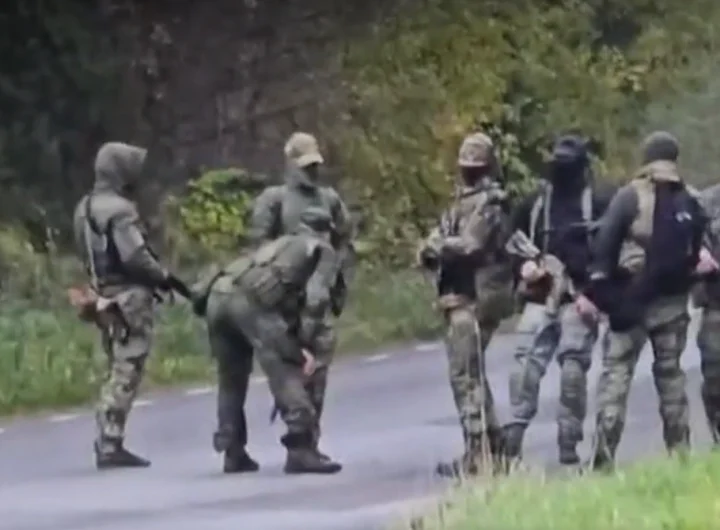 Estonia’s border guard: Armed Russian groups seen in Saatse Boot
Estonia’s border guard: Armed Russian groups seen in Saatse Boot 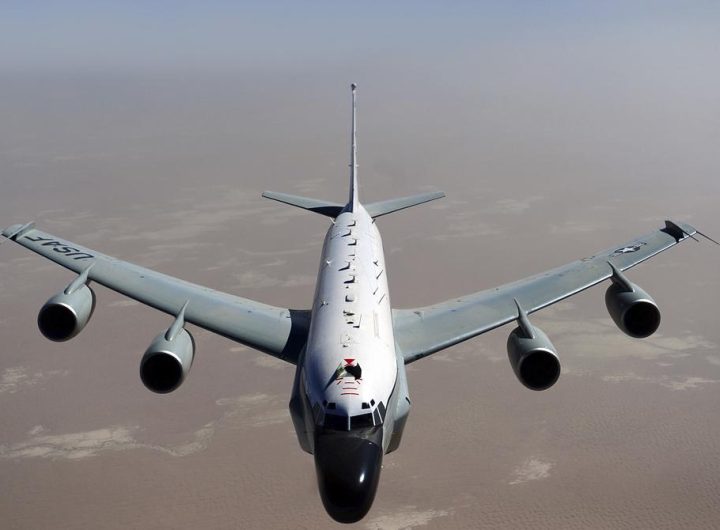 UK’s RAF surveillance aircraft flies 12-hour mission along Russian border
UK’s RAF surveillance aircraft flies 12-hour mission along Russian border 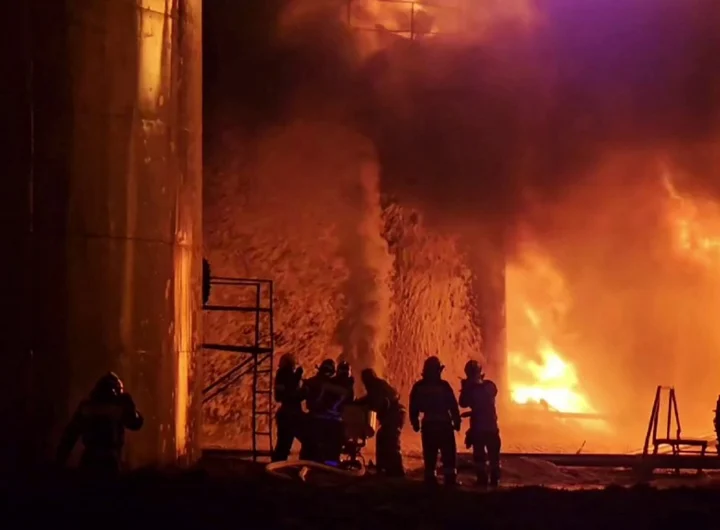 US Intel Helped Power Kyiv’s Strikes That Crippled Russian Oil – Officials
US Intel Helped Power Kyiv’s Strikes That Crippled Russian Oil – Officials 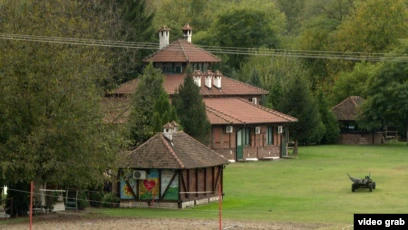 Oasis Or Training Camp? The Serbian Resort Where Russia Allegedly Plotted Unrest In Moldova
Oasis Or Training Camp? The Serbian Resort Where Russia Allegedly Plotted Unrest In Moldova 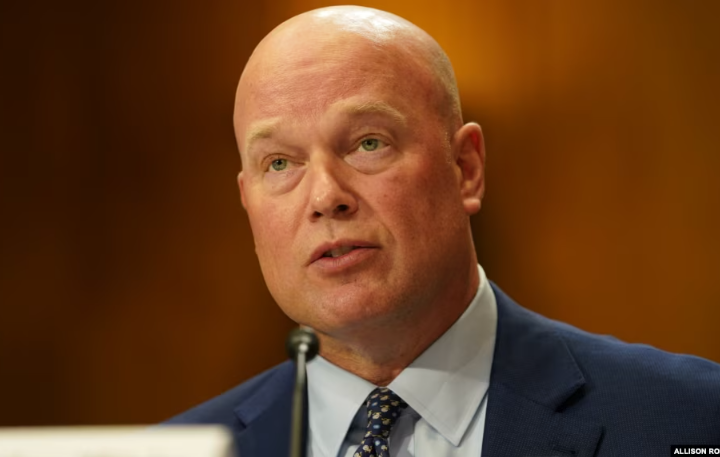 US Ambassador Whitaker Says Trump Has ‘Many’ Cards To Bring Peace To Ukraine
US Ambassador Whitaker Says Trump Has ‘Many’ Cards To Bring Peace To Ukraine 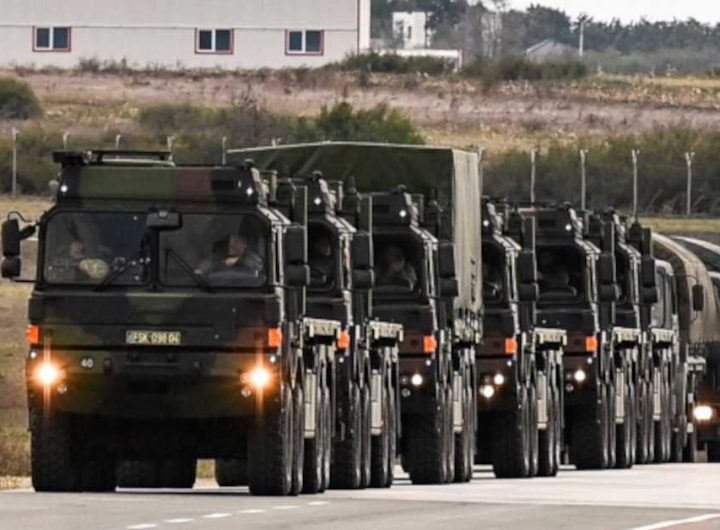 Serbia’s Narrative Against Kosovo and Turkey Over Turkish Drones
Serbia’s Narrative Against Kosovo and Turkey Over Turkish Drones